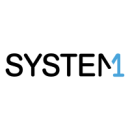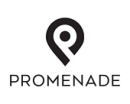Company culture isn’t an asset that can be broken down into metrics or analyzed by success rates. It can’t be included in a Q2 profits report or showcased to investors to bring in additional funding. And yet, a distinguished culture is essential to an organization’s identity — both as a sense of community experienced by every employee, and as an intangible aura felt by potential new hires.
But how is something that can’t be measured so conducive for continued innovation and prosperity? Factors like benefits packages and profit margins don’t bridge connections across teams, but a shared ethos does, and that’s when teamwork can truly shine.
“We have built a culture that is very supportive and focused on developing our team members’ skills,” said Scott Birnbaum, SVP of marketing at System1. “This did not happen overnight — we worked hard to establish it and even harder to maintain it.”
For leaders like Birnbaum and beyond, focusing on culture building has proven to be a worthwhile investment. According to Built In’s research, organizations with strong cultures boast 72 percent higher employee engagement rates than those with weaker cultures and enjoy 40 percent higher employee rates of retention. When employees have the opportunity to grow their careers, slow down and celebrate each victory regardless of size, that’s when authentic culture can blossom.
“It’s so important to remind people how the work they are doing aligns to our company goals and creates value for our customers,” said Amir Hajizadeh, senior software engineer at Ruggable. “There are many ways we do this, but my favorite is celebrating our successes as a whole organization — and more importantly, at the team and individual levels.”
Built In LA caught up with Birnbaum, Hajizadeh and three other tech leaders to learn more about their unique celebratory team traditions, all the ways they keep employees passionate about their everyday work and how the West Coast tech scene fosters tight-knit cultures worth noticing.

Ruggable is an LA-based, venture-backed e-commerce company innovating the market for residential rugs.
What are the key characteristics or values of a good team culture, and how does your team bring those characteristics or values to life?
At Ruggable, our culture is founded on teamwork. The primary characteristics that contribute to living our culture daily are trust, respect and the value of having fun. It’s important to see everyone as a distinct person with many interests and to celebrate our life outside of work.
Our team has grown significantly since 2020 so I relied on virtual engagement to build a strong team. A great virtual activity created by our IT lead was called “Our Covid Times.” During meetings, we heard from everyone about what they had learned, watched, hobbies they picked up and so much more. We also celebrated with virtual happy hours and online games that took place during the week to help breakup our work week. These types of activities helped us build respect as a team. We also respect each other’s expertise because we know that helps us be successful and complete our projects. The team built strong connections that led to quality work.
We trust our team members to get their work done and lean in to help as needed. We encourage hard work but also want our people to take advantage of our unlimited PTO benefit. I want our team to recharge and know we as a team will cover for each other.
How do you ensure members of your team continue to feel challenged, engaged and excited by the work they’re doing?
There are never-ending opportunities to take on new and exciting challenges as we work to disrupt the status quo. I want to align these opportunities to my team in a thoughtful way to keep them engaged and excited about the work. I do this by asking my team members regularly during meetings what they’re interested in, rather than making assumptions.
By doing this, I make sure to spread opportunities across the team and loop each team member into an area where they will grow and be excited to collaborate together. Collaboration always creates a valuable output and stronger team. We have an environment and culture where people feel confident to provide their opinion and ideas as well as lean in to try something new to keep their development always at the forefront of their experience.
Our team is split into pods and rotates quarterly. This provides a robust, holistic view of business, keeps work fresh and creates interactions with people we may not have worked with previously. My teammate Brandon started out working inventory and next quarter he led the pod to develop the RT dashboard that is part of all production lines. He is looking forward to solving next quarter’s challenges.
The primary characteristics that contribute to living our culture daily are trust, respect and the value of having fun.”
Do you have any unique team celebrations, traditions or rituals to celebrate successes?
It’s so important to remind people how the work they are doing aligns to our company goals, strategy, culture and creates value for our customers. There are many ways we do this, but my favorite is celebrating our successes as a whole organization — and more importantly, at the team and individual levels.
We recently celebrated a product launch with barista-made drinks and themed cupcakes in our office. We use our large audience Slack channels and spotlight a value champion in our town halls. These are fun because the team can react immediately. We also use engineering meetings by calling out great work done every week and specifically recognize individuals who delivered great work.
I encourage my team to share recognition so it builds a sense of community and creates a culture of appreciation from all levels of the team. I’ve also asked my team to present during our weekly calls what they did to deliver a project, including what barriers they overcame as well as the value they have added by delivering great work. This is another opportunity to celebrate success and showcase the development of our team to meet the challenges and stay positive in the process.

Who What Wear operates fashion news sites in the United States and United Kingdom.
What are the key characteristics or values of a good team culture, and how does your team bring those characteristics or values to life?
At Who What Wear, a good team culture consists of teamwork, accountability, community, balance and creativity. As a team, we bring these characteristics to life by making sure that everyone lends a helping hand to one another. We also encourage thinking outside the box and imagining what’s next, supporting each other and promoting a strong work-life balance.
How do you ensure members of your team continue to feel challenged, engaged and excited by the work they’re doing?
We’re big believers in the objectives and key results (OKR) goal-setting methodology and center conversations around goals, objectives, successes and improvement opportunities. We connect each person’s job role to the company’s objectives and ensure our employees know how they contribute.
We have a little fun, too. We’re big into team events, social good events, employee mixers and meals together where we cut loose.
Anniversary celebrations are a big thing because we want to let our teams and departments know how much we value them and their loyalty.”
Do you have any unique team celebrations, traditions or rituals to celebrate successes?
We want our employees to bring their best selves to work, and we know that happens when they feel appreciated. Among many others, there are two traditions we’re proud of that come to mind: our celebration of anniversaries and our constant reinvention of employee benefits.
Anniversary celebrations are a big thing at Who What Wear because we want to let our teams and departments know how much we value them and their loyalty. We encourage the use of team budgets to celebrate anniversaries in the way that each team wants to celebrate them. We also invest heavily in employee benefits and find ways to push the boundaries of what’s possible each year.
For example, we recently launched our enrichment allowance, which allows employees a budget to spend towards anything that can improve and support well-being. Maybe a yoga class, learning a new language or really anything else that helps intellectual, emotional, physical and spiritual development. We also absorbed 100 percent of health insurance premiums for our employees and their children as well.

Ylopo provides digital marketing powered by big data and AI for real estate agents and teams across the U.S.
What are the key characteristics or values of a good team culture, and how does your team bring those characteristics or values to life?
Ylopo focuses on three things: open and safe space for respectful communication, compassion for personal struggles, and mentorship opportunities.
When it comes to communication, this couldn’t be more important. We believe that people need to be able to express ideas and vent. Equally, leaders need to be open and transparent about company goals and direction. We like to take a tailored approach when it comes to listening to our team members and help them in achieving their goals along the way.
It’s never been more important to extend compassion for personal struggles. Since the pandemic began, working from home has merged personal challenges with work-life balance. We encourage people to be open and honest with personal hurdles by happily extending slack and compassion. Life happens, and that’s OK.
We recognize that people come from different educational backgrounds and walks of life. If there’s an expectation that someone possesses a skill set and we hire them without that expectation, then it is our responsibility to mentor that skill set and give them the space they need to thrive. When someone grows with a company, they appreciate the company more for it, and we retain more of our staff.
How do you ensure members of your team continue to feel challenged, engaged and excited by the work they’re doing?
Companies may take for granted that the workers on the ground floor are often the actual subject matter experts. Our team members are more committed to the business when they feel they have ownership and genuine contribution to solutions. Rather than think for employees and spell out their work, we present them with the goals and allow them to inform the business of how they might get there.
Leadership is there to hold guardrails and make sure those executing have a clear understanding of the objective and empower their autonomy. Autonomy can be scary, but why hire or keep team members you can’t trust to work as professionals? If we treat our team as responsible owners, they will step up to the plate and deliver with pride in their work.
When someone grows with a company, they appreciate the company more for it, and we retain more of our staff.”
Do you have any unique team celebrations, traditions or rituals to celebrate successes?
During the pandemic, we had to get creative so we started looking for unique celebrations like trivia nights with a live game show host, virtual escape rooms, virtual happy hours and even dedicated gaming channels for quick decompression sessions. We’ve even implemented an instructor-led mental and physical wellness program where we get together as a team.
More recently, we try to get together as a team for dinner celebrations, happy hours and a variety of activities based on the team’s interests. You can find us at some of the best hole-in-the-wall foodie spots all the way to enjoying a friendly Pickleball tournament.
System1 creates desktop and mobile apps, search engines and websites that are designed to help companies find and acquire new customers.
What are the key characteristics or values of a good team culture, and how does your team bring those characteristics or values to life?
We have built a culture that is very collaborative, supportive and focused on developing our team members’ skills. This did not happen overnight — we worked hard to establish it and even harder to maintain it. A big part of our culture is our team norms which are anchored by our values and guide how we operate as a team.
We want each team member to be given the support they need to do their jobs well, and no one should ever be afraid to ask for help. We believe that mistakes are inevitable, as it’s learning from them that is most important. Small team pods meet daily, and pod leads and other team members provide help to anyone who is blocked on their individual projects.
Providing this support is critical, particularly among our new hires. During the pandemic when we were all working remotely, onboarding new team members became a challenge and new members could be reluctant to ask for help. We became more proactive in how we checked in on new hires and made sure that they had the information and tools that they needed to succeed.
We also like to celebrate wins both big and small, we actively create bonding opportunities, and we respect and encourage the use of PTO.
How do you ensure members of your team continue to feel challenged, engaged and excited by the work they’re doing?
We empower our team members by giving each ownership of a book of business which allows them to make an individual impact. We also make it a priority to enrich skill sets by having team members attend training to enhance their leadership and technical skills. We establish clear career growth transparency with well-defined roles and responsibilities that align with career laddering. It is critical for each person on the team to understand what is expected of them in their role and how they can grow to advance within their roles.
We have show-and-tells where team members share problems that they have faced and how they solved them. These not only help people to hone in on their presentation skills, but they also help other team members to hear about challenges that their peers faced and be exposed to new perspectives to handle them.
When new challenges arise or new ideas come up for testing, we form tactical teams to take those on. These short-term teams are voluntary and in addition to the team member’s daily responsibilities. People who take the initiative like the challenge, and they get the opportunity to be creative problem solvers and be leaders.
We want each team member to be given the support they need to do their jobs well, and no one should ever be afraid to ask for help.”
Do you have any unique team celebrations, traditions or rituals to celebrate successes?
Working hard is important but so is having fun, and getting to bond with one another during celebrations are a big part of what we do. Every team puts its own spin on how they celebrate. On our SEM team we have a committee that plans one event per quarter. The team is dispersed around the world so we hold it virtually to make sure that everyone can participate.
We’ve had some innovative formats that have been really fun and interactive. Each event includes some swag or physical component that is mailed to each person beforehand. During the event, there is a Slack channel that is set up for everyone to comment. The committee plays off the theme with a mix of games, awards and prizes. The games can be anything from trivia to virtual dot races. We find that mixing it up makes for a better event. We recently just did a virtual painting party where we mailed everyone paints and a canvas. This was a huge success.
Promenade is a platform that helps local businesses thrive in the world of e-commerce.
What are the key characteristics or values of a good team culture, and how does your team bring those characteristics or values to life?
Culture is cultivated, not curated. Culture doesn’t happen by edict — it is grown. Leaders sew the seeds but ultimately a team will have a culture that meets the conditions of their environment and the individuals.
Our mission is to support local businesses with tools and services. Another way to look at that is that we support entrepreneurs. Our CEO and COO do this internally as well. They have a recurring lunch and learn where they help entrepreneurs inside of the company learn things like where to get funding, building a business plan and everything else they’ve learned while founding and building Promenade. You can really feel it driving the passion of the people in the company.
We talk constantly. We probably talk more being remote than many people do being in an office. We try to pair programs very frequently. It helps spread knowledge and makes you feel connected to the person who just pushed a pull request.
How do you ensure members of your team continue to feel challenged, engaged and excited by the work they’re doing?
In life, four things I value are leadership with initiative, integrity, communication and knowledge. If we worked in an office and there was trash on the ground, do you pick it up or walk past it? Do you fix or report an issue in the code or do you say “that’s not my problem?” Do you do what you say you’ll do? Do you make an effort to connect with others so we’re not just this digital representation that dehumanizes us?
How do we improve ourselves and those around us? We discuss where we can improve in those areas and work towards improving. We have a culture of continuous learning and improvement. Teach and learn. We want to challenge and be challenged.
Of course there’s days where you are going to have to do things that are boring or not fun. In general, we try to align people to work on things that get them excited. Giving people the freedom to take initiative also gives them freedom to be challenged and take ownership.
We talk constantly — we probably talk more being remote than many people do being in an office.”
Do you have any unique team celebrations, traditions or rituals to celebrate successes?
At the end of every week we have a full team meeting where our CTO and VP of engineering read aloud some of the praise given via our “Kudos” tool. Then they give out a gift certificate. It benefits everyone to make the praise honest and meaningful, and for that to be rewarded with a tangible reward. It’s not a replacement for anything like raises and promotions — it’s just nice to hear sometimes when you’ve made an impact in other people’s lives.
As an example, we recently had two new people join a team. During a one-on-one with them I asked how things were going and if they were receiving support. They both exclaimed how this one person was giving them exceptional support being onboarded. Throughout the week I also heard a bunch of nice things about them. People put it in our Kudos app and I wrote a blurb. At the end of the week we read the blurb and gave him a $50 gift certificate in recognition for this.
We all know how stressful starting a new job is, and we all know how stressful having a new team member can be. This person went above and beyond to make that as smooth as possible. The money was just to let them understand that there is sincerity behind the gratitude we have for him doing that.















